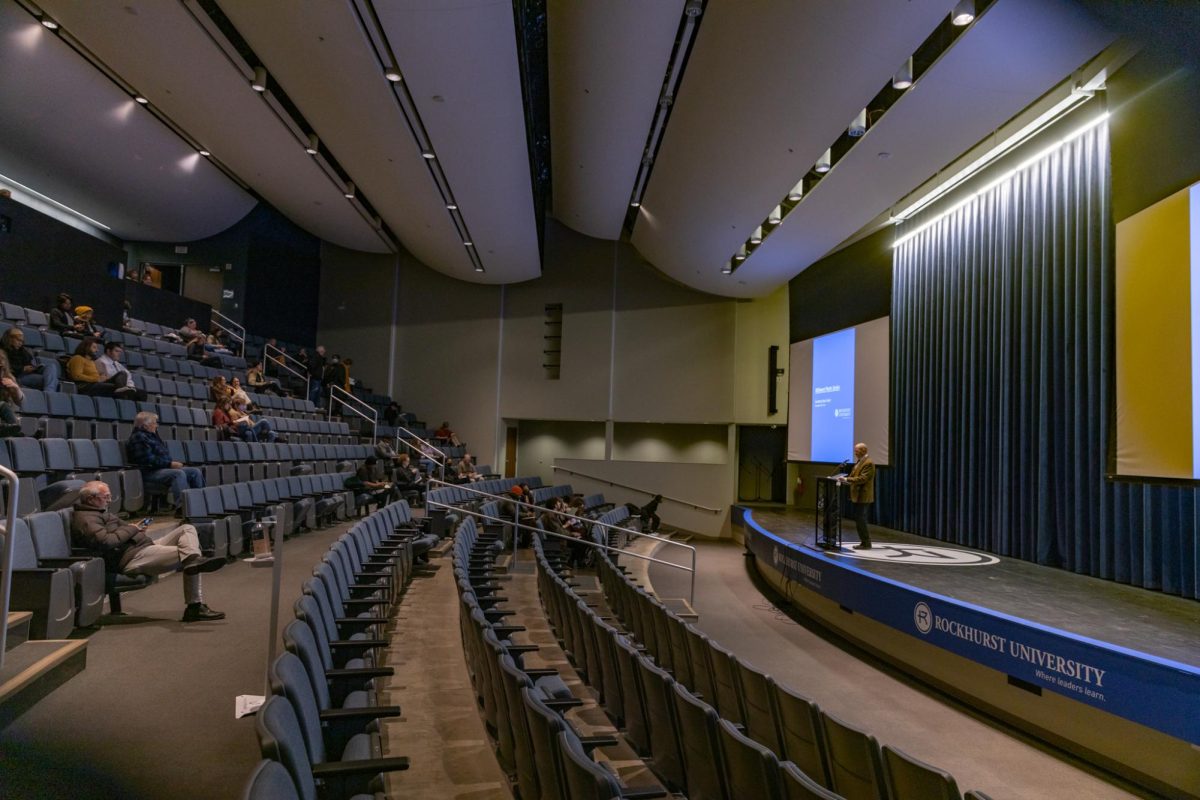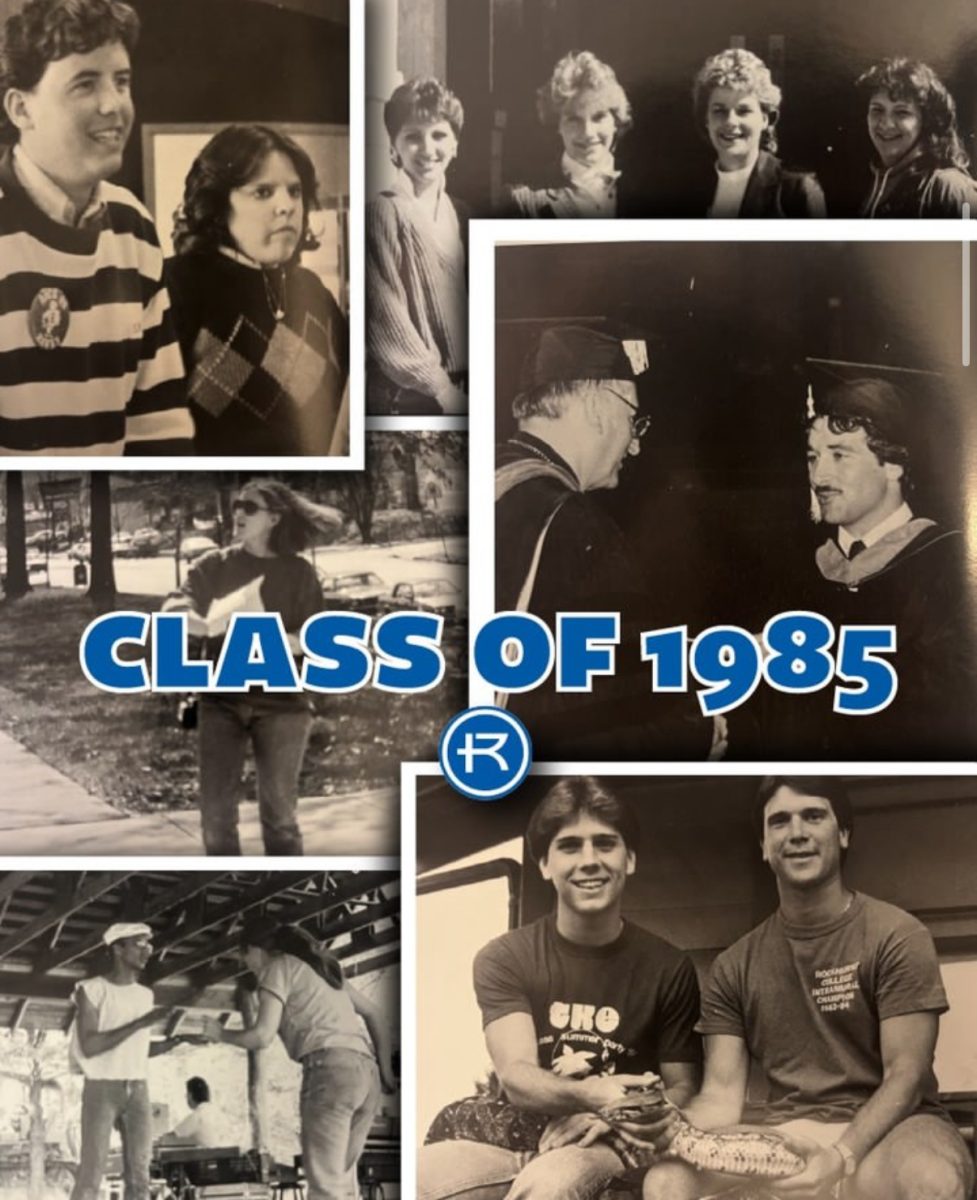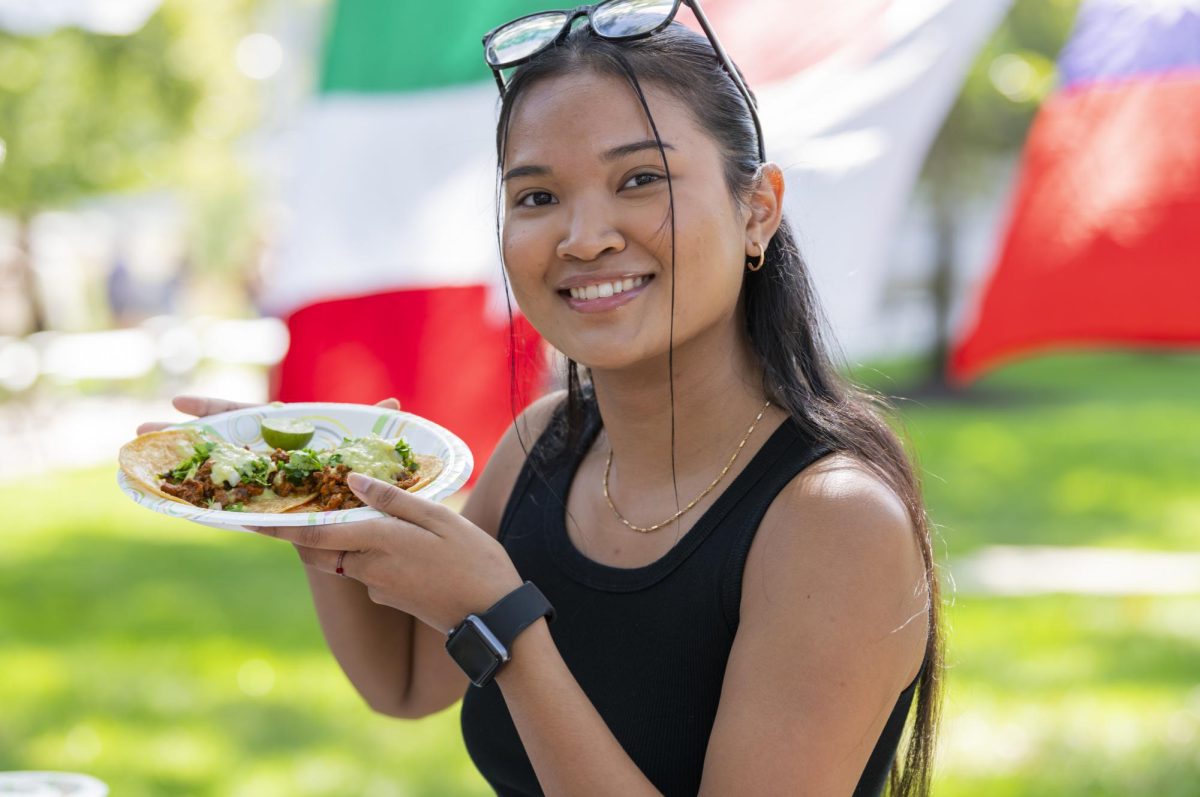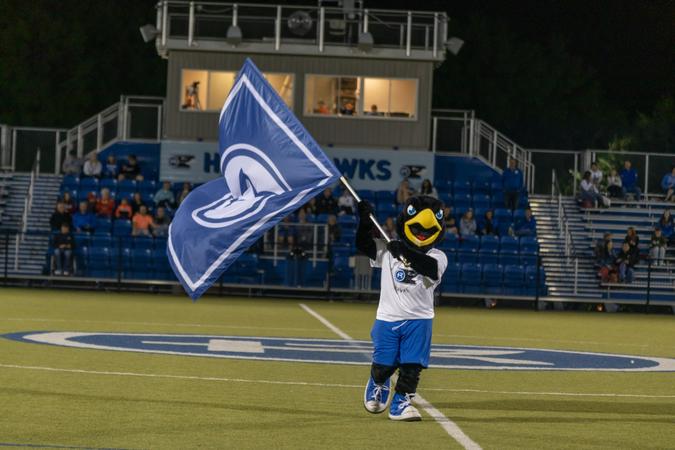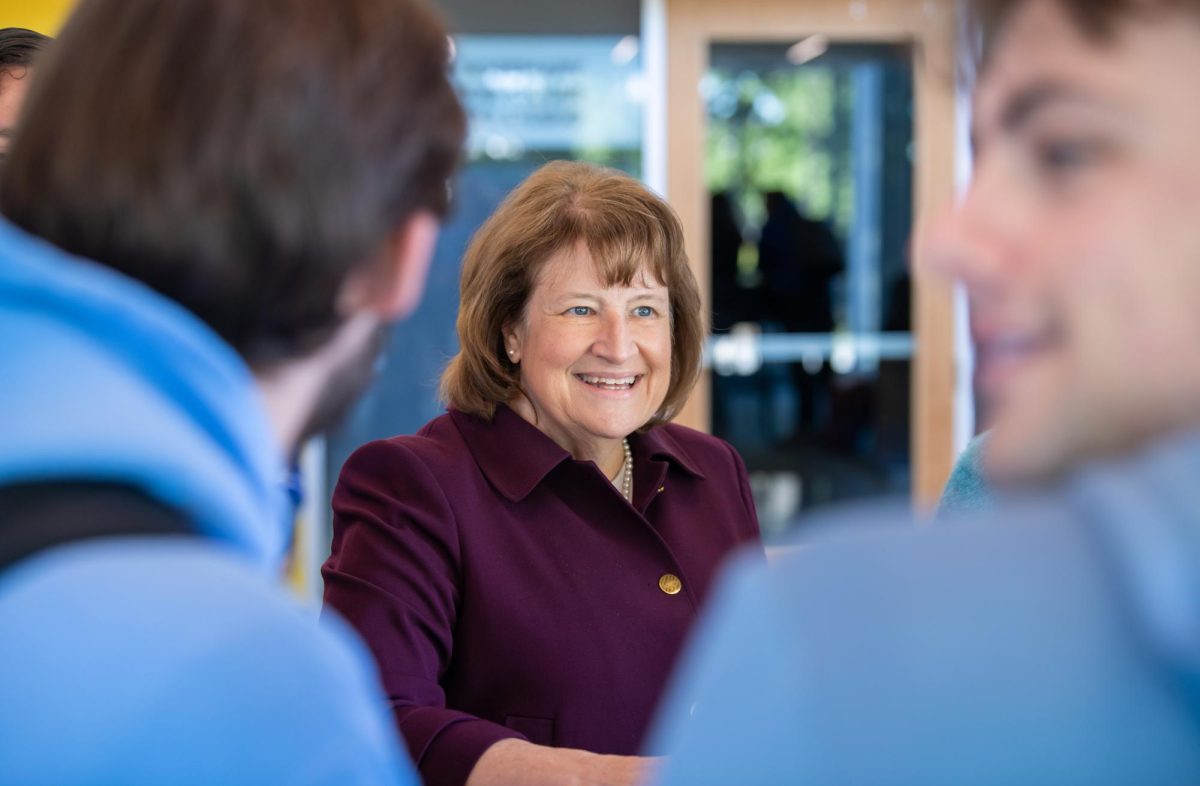On Tuesday, April 8, Rockhurst University hosted “NextGen for Justice,” a panel discussion advocating for the abolition of the death penalty as an expression of Catholic faith. Students, faculty and community members gathered in the Arrupe Hall Auditorium to reflect on their perspective of justice and human dignity through the lived experiences of those directly impacted by capital punishment. The event was part of the Thomas More Center for Catholic Thought and Culture Conversation Series, in collaboration with the Catholic Mobilizing Network.
The panel featured Rev. Lauren Bennett, a spiritual advisor to Amber McLaughlin, the first openly transgender woman executed in the United States after spending more than 20 years on Death Row. McLaughlin was executed by the state of Missouri in January 2023. Also on the panel was Kansas City defense attorney Lawrence Komp, who served on the legal team for Marcellus Williams, executed in Missouri in September 2024. The final panelist, Joe Amrine, was born and raised in Kansas City and spent 16 years on Death Row for a crime he did not commit before being fully exonerated.
Dr. Lynne Bahr, director of the Thomas More Center, opened the evening by grounding the discussion in Jesuit values, stating, “Love our neighbors as ourselves.” Her introduction was followed by a student-led prayer and a warm welcome from Bill Kriege, Rockhurst’s director of service and action, who facilitated the evening’s conversation.
Each panelist shared deeply personal insights. Amrine described being wrongfully convicted by an all-white jury and choosing Death Row over life imprisonment in hopes of receiving legal representation.
“The penalty phase is either Death Row or life in prison for 50 years without parole,” Amrine said.
He knew it was the only way he would be appointed a lawyer to continue fighting for his life, which would not have been an option if he accepted life in prison.
Bennett spoke of her experience with McLaughlin in the weeks leading up to her execution.
“It felt important for me to get to know her and what she was looking for in a spiritual advisor,” said Bennett. “I got to meet the good that lived in Amber and Amber alone.”
Following this, Kriege posed an open-ended question: how do you hold onto hope in such dark and difficult circumstances?
Komp reflected on his time representing Williams, sharing that even in Williams’ final weeks, he saw a deep sense of hope within him. He emphasized the need to uphold the dignity of those facing execution, reminding the audience that are human beings.
“Hope lasts with resilience,” said Komp. “I try to get a sense of who I am in the context of who I am dealing with.”
Audience members were invited to ask questions, and the panelists encouraged all present to consider the moral and ethical weight of capital punishment. As the event concluded, the conversation left many reflecting on the need to align action with values.
The event was one stop on the Catholic Mobilizing Network’s national tour to promote death penalty abolition. The organization empowers Catholics and people of goodwill to work toward ending capital punishment in the United States through education, advocacy and faith-based engagement.



